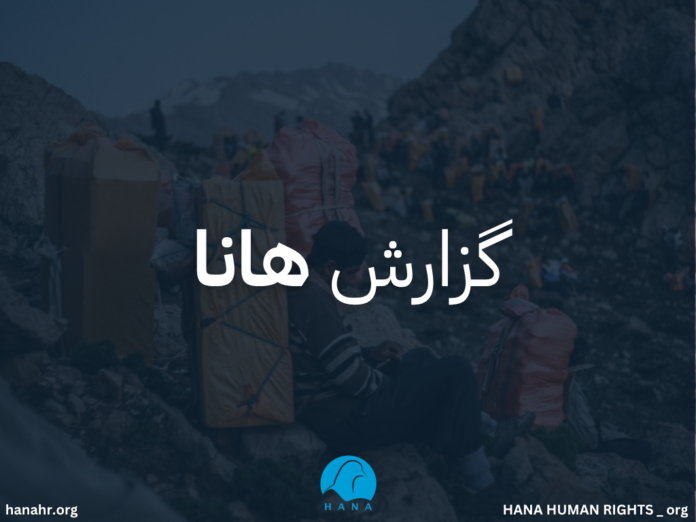According to verified data collected by the Hana Human Rights Organization, following the Iran-Israel war and the announcement of a ceasefire, the armed forces of the Islamic Republic of Iran have systematically intensified the extrajudicial killing of Kurdish kolbars over the past month. Based on statistics gathered by Hana, nine Kurdish kolbars have been killed by direct gunfire from Iranian military forces along the Kurdistan borders.
Iran acceded to the International Covenant on Civil and Political Rights (ICCPR), adopted by the UN General Assembly, on December 16, 1966. According to Article 9 of the Civil Code of the Islamic Republic of Iran, the provisions of this covenant hold the force of domestic law. Article 6, paragraph 1 of the ICCPR explicitly states:
“Every human being has the inherent right to life. This right shall be protected by law. No one shall be arbitrarily deprived of his life.”
Despite this clear obligation, field evidence and documentation indicate that the Iranian border security forces repeatedly and systematically violate the right to life of citizens in border areas—particularly Kurdish kolbars—without accountability or access to any fair judicial process.
Kolbari is neither defined in Iranian law nor recognized by the Islamic Republic’s legal system as an official profession. Consequently, kolbars are excluded from all legal protections related to labor, insurance, and occupational safety. This legal vacuum makes them highly vulnerable to violence, exploitation, and systemic injustice. Numerous field reports confirm that kolbars not only face life-threatening dangers while traversing treacherous terrain, but also experience extortion by border agents, confiscation of goods, arbitrary arrests, and at times, physical and psychological abuse.
Hana’s investigations indicate that this new wave of killings has escalated significantly in the context of recent national security developments, particularly the military confrontation between the Islamic Republic of Iran and Israel. In recent weeks, the Iranian government has further militarized border regions and, by labeling kolbars with unfounded accusations such as “espionage,” “collaboration with the enemy,” or “smuggling of intelligence equipment,” has attempted to create a narrative to justify the murder of these impoverished civilians. These actions not only represent deliberate misinformation and scapegoating, but also constitute grave violations of due process, the presumption of innocence, and human dignity.
The names of the kolbars killed in this period are as follows:
- Seivan Abdollahzadeh, 24, from the village of Haft-Tash, Baneh County
- Khaled Mohammadi, 23, from the village of Anjineh, Baneh County
- Rezgar Mohammadi, 42, from the city of Bukan
- Payam Ahmadi, from the village of Barqro, Sarvabad County
- Latif Yaghubi, 45, from the village of Koozeh-Rash, Salmas County
- Danial Salehi, 24, from the village of Doplureh, Marivan County
- Amin Gardi, from the village of Kani Tamarkhan, Marivan County
- Rasoul Fathi, from Marivan
- Barzan Salehi, from Baneh
All information related to these victims has been documented and archived in the Statistics Center of the Hana Human Rights Organization. Many of the victims’ families, upon seeking justice or legal recourse, have faced threats, summons, or been pressured into silence.
Hana Human Rights Organization expresses its grave concern over the worsening situation and the surge in kolbar killings. It calls on international human rights institutions—particularly the UN Human Rights Council, the UN Special Rapporteur on the Situation of Human Rights in Iran, and the European Union—to use their legal and diplomatic capacities to demand:
• An immediate end to the use of lethal force against kolbars
• Independent and impartial investigations into recent killings
• Legal prosecution of officials and military personnel responsible for these egregious human rights violations.

